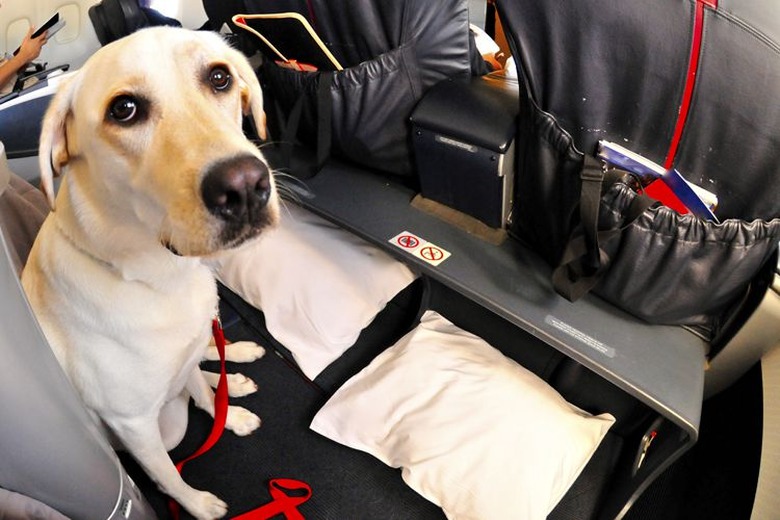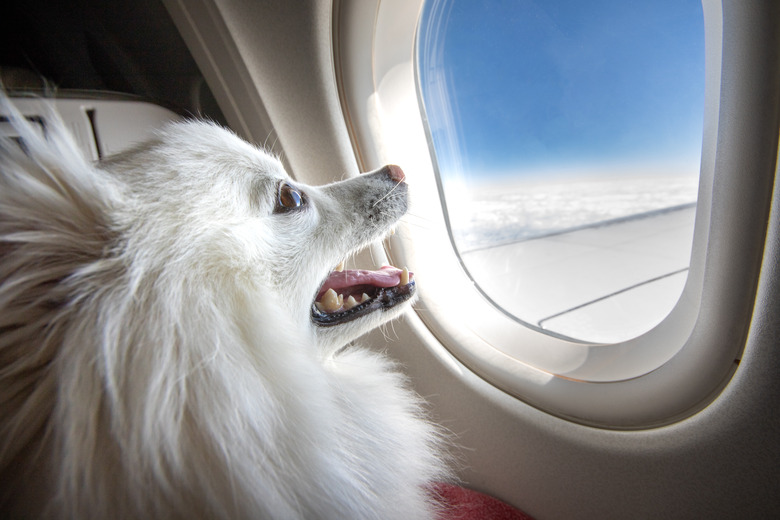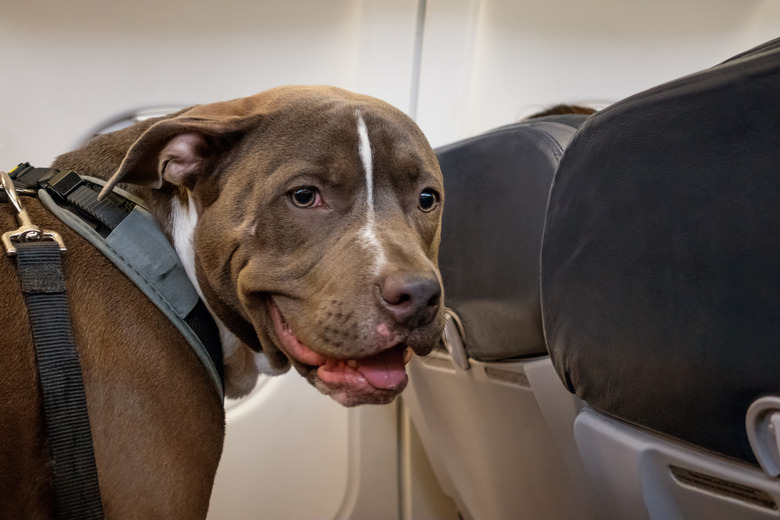Do Dogs' Ears Pop When Altitude Changes?
Ear popping is a familiar, though not exactly pleasant, sensation for those of us who travel by air, hike in the mountains, or embark on road trips across areas of differing elevations. And if your dog has ever traveled along with you, you may have wondered, do dogs' ears pop when experiencing a change in altitude?
Well, the simple answer to this question is, yes, dogs and other animals do experience ear popping with a change in altitude. But what's the biology behind this rather curious sensation? Read on to find out.
How sensitive are dogs' ears?
How sensitive are dogs' ears?
In general, a dog's sense of hearing is far more sensitive than a human's. While we can detect sounds between 20 hertz to 12,000-20,000 hertz (depending on age), dogs can hear somewhere between 40 to a whopping 60,000 hertz (also depending on their age). This is why they can hear the ultra high-pitched sounds of dog whistles, which are between 16,000 and 22,000 hertz, and we can't.
Even though dogs' ears can pick up more frequencies than we can, the way that their ears work isn't all that different from ours. Both dogs and humans have a middle ear and a tube called the Eustachian tube that leads down to the throat.
When a person or animal experiences a change in air pressure, their Eustachian tube should widen to equalize the pressure within the middle ear. Before this happens, you'll have that uncomfortable feeling of fullness in the ear and muffled hearing — which the widening (characterized by popping) eventually relieves. Sometimes, we can help the popping along by yawning, swallowing, or pinching our nostrils shut and attempting to blow through our nose — all of which cause the Eustachian muscles to contract.
Do dogs' ears pop on planes?
Do dogs' ears pop on planes?
Dogs' ears may pop as a plane takes off or lands, which could startle them and cause a bit of discomfort. However, there are ways to help prevent your dogs' ears from popping or clogging.
Similar to the way that some people chew gum to keep their ears from clogging, you can give your pup a chew treat during altitude changes. The licking and swallowing will relieve pressure in their ears and prevent clogging. Plus, it will also distract them and keep them from getting anxious in the unfamiliar environment of a plane.
You can also consider giving your pup earmuffs to wear during the flight. While these won't prevent clogging, they will muffle the loud noises of the plane. This could help lessen your dog's anxiety while flying.
Helping a dog with altitude sickness
Helping a dog with altitude sickness
Just as dogs' ears are more sensitive to sound than ours, many dogs' ears can also be extremely sensitive to elevation changes. Vets recommend that we gradually expose our dogs to changes in elevation, allowing their ears adequate time to become accustomed to air pressure changes.
Dogs, like humans, are also prone to suffering from altitude sickness, the symptoms of which include rapid breathing, panting, dry cough, drooling, pale gums, and refusing to walk. If you notice these symptoms, the dog should be taken to a lower altitude as soon as possible, given an oxygen mask if available, and then immediately brought to the vet for care.


